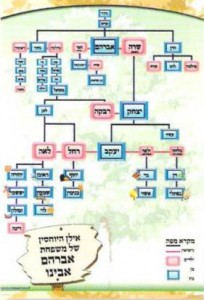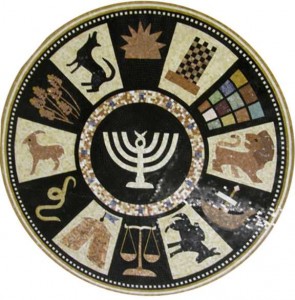Jul 12, 2016
Posted by Scripture Solutions on Jul 12, 2016 | Comments Off on How to Win Friends and Not Lose Self-Respect
The poor is disliked even by his neighbor, but the rich has many friends. (Proverbs 14:20) ESV
גַּם־לְ֭רֵעֵהוּ יִשָּׂ֣נֵא רָ֑שׁ וְאֹהֲבֵ֖י עָשִׁ֣יר רַבִּֽים׃
Ever wonder how two soon-to-be newlyweds can spend a $1 billion on a wedding? One couple in Moscow took the celebration of a lavish wedding ceremony to a whole new level.
The wedding was held at Safisa, a luxury banqueting venue the couple transformed into a fairy-tale setting with walls of freshly-cut flowers and furniture from Paris.
The 600 wedding guests were served sushi and feasted on a full European meal, which ended with the presentation of a cake taller than the couple. Elie Saab designed the bride’s 28-pound custom gown, which is estimated to cost $25,000.
For entertainment at the ceremony, the couple enlisted Sting and Enrique Iglesias to warm up the stage for none other than Jennifer Lopez.
An official price tag for the wedding isn’t available, but Harper’s Bazaar estimates it falls within the $1 billion range.
 Knowing opportunists who are out to hobnob with the rich and famous, I doubt whether many invited guests declined to attend this unique affair.
Knowing opportunists who are out to hobnob with the rich and famous, I doubt whether many invited guests declined to attend this unique affair.
As a former pastor I have officiated at countless weddings. Some affairs were exquisitely done. Others were simple–a church fellowship hall with punch and wedding cake for refreshments.
What I remember most about these weddings is not the money spent, but the genuine support and friendship the guests had shown towards the couple.
The value of lasting friendships is the subject of Proverbs 14:20. What is friendship? How can we tell when relationships are real or based on dubious motives?
In this no nonsense proverb, Solomon cautions us against using friendships to get close to people capable of providing something for our benefit.
The King of Israel questions whether we avoid friends going through financial hardships because they may expect us to rush to their aid. In contrast, we may gravitate more towards the well-to-do because of how they may benefit us. (more…)
Jun 20, 2016
Posted by Scripture Solutions on Jun 20, 2016 | Comments Off on Proverbs for Living Skillfully
Automaker Henry Ford hired electrical genius Charlie Steinmetz to build the generators for his factory. One day the generators came grinding to a halt, and the technicians couldn’t find the problem. Ford called Steinmetz, who tinkered with the machines for a few hours and then threw the switch. The generators whirred to life–but Ford got a bill for $10,000 from Steinmetz. Flabbergasted, the rather tightfisted car maker inquired why the bill was so high.
Steinmetz’s reply: For tinkering with the generators, $10. For knowing where to tinker, $9,990. Ford paid the bill (Today in the Word, MBI, April 1990, p. 27.).
Today we place more value on our unproductive, frantic efforts than the wisdom involved in “knowing where to tinker.” After all, “knowing where to tinker” is more than a mere indicator of knowledge, but a sign of wisdom. Anyone can offer a reasonable guess regarding the nature of a problem we are facing. However, it takes wisdom to know how to apply that speculation and make a wise choice that leads to a resolve.
Nested in the midst of the books of Wisdom (Job, Psalms, Proverbs, Song of Solomon, Ecclesiastes) is a goldmine of biblical counsel for learning how to live skillfully. King Solomon’s Book of Proverbs is a much neglected biblical work that contains timeless truths that show us “where to tinker” in the major issues we face everyday.
One of the areas where followers of Jesus are forever tinkering in trying to determine God’s will. Christians spend precious time in this endless and often fruitless pursuit. Good news! The Book of Proverbs is God’s guidebook for finding His will. This is the major source in the Scriptures that reveals not merely the information about God’s will, but discloses “where to tinker.”
Once we have read and understood this work of wisdom, we will no longer need to speak of “discovering God’s will.” His plan for our lives becomes more apparent the deeper we dig within Solomon’s volume of wisdom.
Besides being a manual that enables us to understand the ways of God, the Book of Proverbs describes the qualities of spiritual character. As we will discover in Solomon’s sayings, possessing spiritual character goes hand-in-hand with grasping the will of God. (more…)
Jun 25, 2014
Posted by Scripture Solutions on Jun 25, 2014 | Comments Off on Did Those Six Million Jews Die for You?

The Entrance to Auschwitz
By now the controversy surrounding the Jews for Jesus video “That Jew Died for You” has simmered down. Still the strong negative reaction by the Jewish community to the JFJ evangelistic effort remains a stain on Jewish-Christian relations.
At the release of the video prior to Holocaust Remembrance Day, a Jews for Jesus press release, explained the video seeks “to help redefine the conversation and reshape views of Jesus and His relationship to the Holocaust.”
The intentions of JFJ in the production of this video were honorable and aimed to initiate conversation among Jewish people regarding Christianity’s relationship to the murder of six million Jews under the evil Nazi regime.
David Brickner, Executive Director of JFJ offered his public commentary on the video, “The horrors of the Holocaust and the 6 million who died has gnawed at the consciousness of Jews for over 60 years. We want Jewish people to understand that the sufferings inflicted at the hands of the Nazi’s were in no way based on the teachings of Jesus (underlining mine). In fact, he suffered and died on our behalf to show us the love of God.”
Oddly, the majority of Jewish people do not think the teachings of Jesus are responsible for the horrors of the Holocaust. Rather, the Jewish community is more concerned with the antisemitic attitudes of Eastern European Christians prior to and during World War II that helped fuel the racist ideology behind the Holocaust. (more…)
Apr 4, 2014
Posted by Scripture Solutions on Apr 4, 2014 | Comments Off on Not All Israel Is Israel Part 3
The controversy over God’s continuation of Israel as a viable nation despite their rejection of Jesus as their Messiah looms large in the Christian church.
Most followers of Jesus are not even aware of the various Christian theologies regarding the Jewish nation. Yet when uninformed evangelicals are exposed to such anti-Israel beliefs such as Replacement Theology (the view that Israel is no longer God’s elect people but replaced by the Church), these Christians are conflicted over what they are hearing and what the Bible teaches.
As a representative of Replacement Theology (though he prefers the term “Fulfillment Theology”) Gary Burge, New Testament professor at Wheaton College, in his book Whose Land? Whose Promises? the author states, “Abraham can become the father of many nations because when Gentiles share in Abraham’s faith, he becomes their father too (Romans 4:16). Physical lineage, therefore, has been spiritualized into a lineage based on faith (emphasis mine). The ‘land of Israel’ is likewise spirtualized now to include the entire world” (pg. 182).

The key concept to focus on from Burge’s theology is, “physical lineage . . . has been spiritualized into a lineage based on faith.” Israel is no longer a physical nation, according to the Wheaton professor, but has become a spiritual entity that one enters into by faith in Christ not by physical heritage through Abraham. If the physical seed has been “spiritualized” then the “physical” is no longer relevant, hence the physical nation of Israel is moot to God’s spiritual program.
The glaring mistake Burge makes is twofold: first, the physical lineage of a member of the nation of Israel never implied the individual within the nation has a relationship with God, and second, within the physical nation of Israel there has always existed a spiritual remnant of Israelites who remained faithful to God. These two truths do not redefined the nation of Israel, but describe the reality of a spiritual remnant within the physical Jewish nation.
In contrast to Gary Burge’s fulfillment theology which pushes aside God’s plan for the physical nation the Apostle Paul teaches that Israel still exists as a nation even after the first coming of the Messiah. In Romans 9:3-4a Paul pleads, “For I could wish that I myself were cursed and cut off from Christ for the sake of my people, those of my own race, the people of Israel.” To Paul, “those of his own race” are “the people of Israel” quite alive and not replaced by or fulfilled in the New Testament church. (more…)
Mar 20, 2014
Posted by Scripture Solutions on Mar 20, 2014 | Comments Off on Not All Israel is Israel Part 2
To many students of the Bible Paul’s comment in Romans 9:6 that “not all who are descended from Israel are Israel” (NIV) sounds very strange. Is Paul saying the part of Israel that is “descended from Israel” is no longer part of the nation known as Israel? Then that would mean the only people who are actually Israelites are Jewish people who believe in Yeshua as Messiah and the “not all who are descended from Israel ” group are no longer members of the Jewish nation. Yet if you follow that logic, any examples of the NT apostles addressing the segment of the Jewish nation who have not accepted Yeshua as Messiah as still “Israel” makes no sense.
Check out these examples from the New Testament:
Acts 2:22: “Fellow Israelites, listen to this:
Acts 2:29: “Fellow Israelites, I can tell you confidently that the patriarch David died and was buried, and his tomb is here to this day.”
Acts 2: 36: “Therefore let all Israel be assured of this: God has made this Jesus, whom you crucified, both Lord and Messiah.”
Acts 3:12: “When Peter saw this, he said to them: “Fellow Israelites, why does this surprise you?”
Acts 3:17: “Now, fellow Israelites, I know that you acted in ignorance, as did your leaders.”
Acts 4:10: “then know this, you and all the people of Israel: It is by the name of Jesus Christ of Nazareth, whom you crucified but whom God raised from the dead, that this man stands before you healed.”
No wonder Christians are befuddled by Paul’s reference to two Israel’s in Romans 9:6.

Twelve Tribes of Israel
In light of Paul’s head-scratching use of the phrase, “”not all who are descended from Israel are Israel”, Christian theologians come up with explanations that confuse the issue even more.
My favorite explanation is the one that states unbelieving Israel has been replaced by the Church. This is called “replacement theology.” In this theological system, “Israel” that accepted Yeshua is none other than the Church. Rather than create clarity, Replacement Theology (aka disguised as Fulfillment Theology or Transformation Theology or Promise Theology) contributes more fuzzy thinking since the reader of the New Testament is forced to think “Church” when he reads the term “Israel”. Try to think “Church” in reading Romans 11:26, “and in this way all Israel will be saved.” Thanks, but no thanks. (more…)
 Knowing opportunists who are out to hobnob with the rich and famous, I doubt whether many invited guests declined to attend this unique affair.
Knowing opportunists who are out to hobnob with the rich and famous, I doubt whether many invited guests declined to attend this unique affair.









